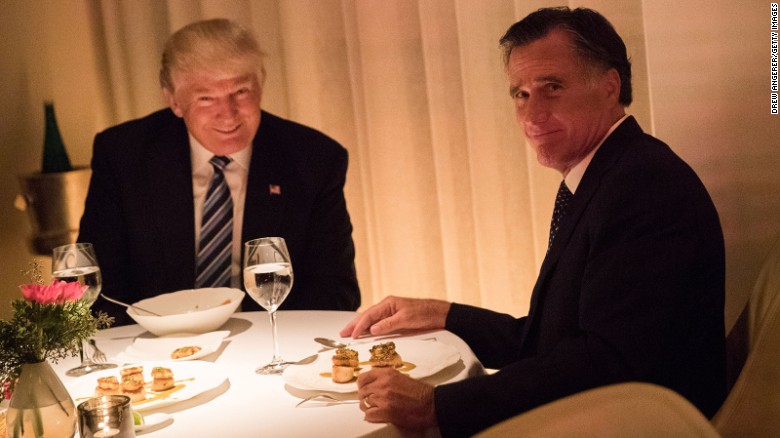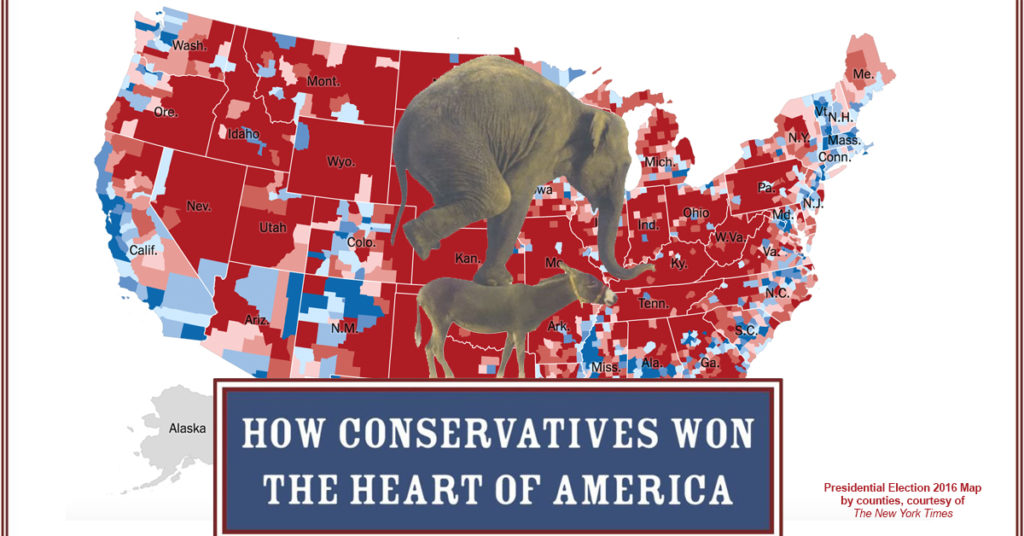Mysteries of the Great Plains
What’s the Matter with Kansas is an interesting, fun book. Tomas Frank wrote this fiery polemic in 2004, but it remains relevant today. The crux of the argument is that conservatives (“Cons”) are voting against their own economic interests. They do this, he insists, because they prefer socially conservative policies (they’re staunchly pro-life, anti-marriage equality, anti-evolution, etc.). Moderate republicans (“Mods”), the wealthy republicans, however, don’t care about those issues. In fact, they’re embarrassed by the Cons. But, they will sit down, shut up, take their tax cuts, and not complain too much.
Frank focuses on his home state of Kansas, formerly known for its populist leftism, as it has transformed from a moderately republican state to a highly conservative one, kicking, screaming, and wailing about every cultural issue our nation faces along the way: abortion; LGBT+ equality; prayer in schools; violence in movies, etc. These culture wars are all fights they cannot win, but it makes people feel righteous, and it compels them to vote.
He attributes this bizarre shift to a virulent strain of anti-intellectualism that loathes the arrogant experts who tell them what to think, do, eat, watch, and how to live: it’s the liberal elite who look down on “flyover country.” This attitude towards “the elite,” those socially liberal, arrogant cosmopolitan types on the East Coast, stems from the social changes in the 1960s, and the Roe v. Wade Supreme Court decision, among other things.
Why The Shift?
Frank credits conservative politicians for their opportunistic brilliance. When the Democratic Party moved more to the right on economic issues under President Clinton, it left little to distinguish the parties.
“With Democrats and Republicans having merged on free trade, the issues that remained were abortion and guns. And, of course, government itself.” –What’s the Matter With Kansas, page 177
Sam Brownback, a former U.S. Senator for Kansas and its current governor, even says “Kansans don’t care about economic issues… they’re all on fire for culture war…” What conservatives have managed to do is completely separate economics from politics. It is now all about cultural values.
And that’s the magic trick: economic power has nothing to do with class or elitism. Being a member of the elite concerns qualifications like the car you drive (Volvo vs. Chevy), the cheese you eat (imported vs. American), and the coffee you drink (lattes v. Folger’s). There are, of course, conservative elites, but as long as they vote republican, they’re in the clear.
“Yes, the Cons will acknowledge, things have gotten materially worse on the farms and in the small towns, but that’s just business, they tell us. That is just forces of nature doing their thing. Politics is something different: Politics is about blasphemous art and crazy lawsuits filed by out-of-control trial lawyers and smart-talking pop stars running down America. Politics is when the people in the small towns look around at what Wal-Mart and ConAgra have wrought and decide to enlist in the crusade against Charles Darwin.” –What’s the Matter with Kansas?, page 239
The Media Machine
Watch Sean Hannity or Fox News, or listen to Ann Coulter sometime. You’ll be amazed at how few discussions on economics there are. You’ll be surprised by the constant outrage over something minute (Media Bias Alert!) and the lack of a dissenting voice. Be on the lookout for hypocrisy, too, because it abounds.
In this mind-bending universe of conservative media, it is easy to become a herald of Sean Hannity’s faux populist apoplexy du jour. For instance, President Obama eats fancy burgers with dijon mustard. The common man does not; he prefers Heinz ketchup.
But Donald Trump enjoys garlic soup with frog legs and diver scallops as an appetizer; prime sirloin with citrus glazed carrots as the main course; and a scrumptious chocolate cake for dessert. This is a meal suitable for The People. Obama’s burger, however, is reserved for the élite. But not any old elite, of course – they’re much worse than that. They’re liberals.

The Conservative Experience
Kansas serves as a valuable anthropological analysis, but it at times feels condescending and contemptuous – the exact thing Frank explains is the main complaint about the Left. I’m from a small conservative town in East Texas, and I understand the frustration.
The Texas representative for my hometown district won by running a campaign highlighting his two main platform points (and I’m not joking): he has a concealed handgun license, and he is pro-life. When he gets the opportunity, he supports things like school vouchers that would mulct funds away from public schools like the one I attended. In a way, my hometown resembles Kansas, except its economy is doing much better, so it appears.
I can attest: these conservative people aren’t stupid. They’re not worthy of disdain, either. I cannot explain why they think, for example, that tax cuts for the massively wealthy will help them. But I am a little closer to understanding cultural grievances.
At the moment, I don’t have solutions for our divisive political situation. But, I do believe that information, empathy, and communication will help. As I said in my review of Hillbilly Elegy, we must understand those who are different than us as people. Not as an underclass or a despised political faction.
As I conclude, it is worth noting that a Kansas House race is surprisingly competitive. Perhaps, at least in Kansas, the mysterious winds of the Great Plains are shifting once more.
Get your copy of What’s the Matter with Kansas?: How Conservatives Won the Heart of America

